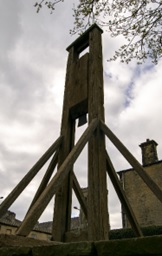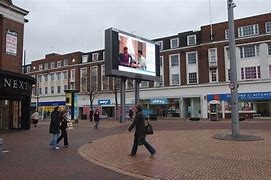The "noughties" or "naughties" encompassed an interesting decade, and for the overall picture, Neil Armstrong's reflections are admirable; set against the 9/11 suicide terrorist attacks in the USA in 2001 he captures the optimistic mood which began to prevail, at least on a local level.
The Noughties. We loved it so much we couldn't wait for it to end.
 “From Hull, from Hell, from Halifax … Good Lord deliver us”, as if John Taylor’s 17th-century poem were evidence of the city’s eternal damnation. In the Noughties a common reaction from outside Hull was one of scorn: in 2003 it was named Britain’s most “Crap Town” by the Idler magazine. This form of lazy journalism stigmatized the whole City.
“From Hull, from Hell, from Halifax … Good Lord deliver us”, as if John Taylor’s 17th-century poem were evidence of the city’s eternal damnation. In the Noughties a common reaction from outside Hull was one of scorn: in 2003 it was named Britain’s most “Crap Town” by the Idler magazine. This form of lazy journalism stigmatized the whole City.
Hull, Hell, and Halifax formed part of the so-called Thieves’ Litany, uttered in Mediaeval Yorkshire as a parting entreaty between two thieves. Hell was to be feared, as was Hull Gaol with its evil reputation. Halifax was one of those towns granted the right to a ‘gibbet’, a particular brutal form of early guillotine.
A once proud Seaport, Hull had been devastated by neglect, bad planning decisions, and associated social problems and had never fully recovered when Iceland triumphed over the disputed fishing lands in the Cod Wars.
Hull would acquire a different soubriquet in the next decade. Replacing that derogatory word with another one; “Culture”, the City’s definition would shift so dramatically, that even the Idler’s editor had to congratulate it on its success.
Historically one of Hull’s assets is music making, with the city producing bands from the Housemartins and Everything But the Girl, to Fine Young Cannibals and more recently, the Paddingtons.
This epoch had started in its very first second with the fear that the internet superhighway, would cause planes to fall from the skies . . . our Automatic Teller Machines fail, and the whole network would go down. The first decade of this century would end with us all having made a thousand more contracts with that electronic devil. An Individuals life, professionally and personally, would go through the Internet connection, Everyone becoming a ‘celebrity,’ the appeal of social networking was and still is, not just reaching out and connecting with friends . . . You read about them as if you're in a magazine. It's a narcissism of a kind that really has exploded. And when it goes away for many, it's very traumatizing, The time that was once given to allowing things to breathe . . . had gone. It was the "all-about-me” decade.
 Locally, Bookstart was aiming to introduce literature to very young children as a counter to this electronic malady, by giving a free book pack to every baby born. To encourage a love of books, stories, and rhymes.
Locally, Bookstart was aiming to introduce literature to very young children as a counter to this electronic malady, by giving a free book pack to every baby born. To encourage a love of books, stories, and rhymes.
This era saw the chalkboard replaced with Electronic whiteboards together with the launch of Wikipedia. Computers were becoming smaller and more powerful. Laptop computers grew in popularity. The first smartphones were launched. Which were in effect small computers. More people started using emails to communicate. Social media titans: Facebook, YouTube, Twitter, and Instagram started.
Music and TV could be downloaded at any time and watched 24 hours a day!
 Hull’s controversial icon, the Big Screen in Queen Victoria Square, had been erected at a cost of £650,000. People watched while wearing some of the decade's notably cringe-worthy styles; low-rise jeans, platform flip-flops, Crocs, dresses worn over jeans, and chunky highlighted hairstyles. The t-shirt and blazer combination however was deemed one of the best trends from the decade. Considered a waste of space and money by many, the Big Screen did draw crowds for some sporting spectacles, (such as the Olympics in Beijing). It was turned off for good in 2009.
Hull’s controversial icon, the Big Screen in Queen Victoria Square, had been erected at a cost of £650,000. People watched while wearing some of the decade's notably cringe-worthy styles; low-rise jeans, platform flip-flops, Crocs, dresses worn over jeans, and chunky highlighted hairstyles. The t-shirt and blazer combination however was deemed one of the best trends from the decade. Considered a waste of space and money by many, the Big Screen did draw crowds for some sporting spectacles, (such as the Olympics in Beijing). It was turned off for good in 2009.
Not far away the Mermaid Penny Fountain outside Fletchers delicatessen that had enchanted generations of children, by throwing coins for wishes was removed. The same time saw the collapse of Lehman Brothers, one of the major players in global banking.
Men could no longer ‘spend a penny’, vandalism, drug abuse and other activities, as well as the lack of handwashing, led to the closure of the freestanding gents' conveniences dotted around the city.
Nor could people buy their ‘pick-n-mix’ from Woolworths anymore, as it had closed its doors for good. As did Clifford Dunn who ran the Savemore stores with great success. His shops were the forerunners of self-service in big stores. Skelton’s bakery famed for its apple doughnuts and Maids of Honour, went into administration in 2007, albeit St. Stephen's Shopping Centre was opened in the same year.
 Bob Carver's fish and chips shop on Trinity House Lane in the Old Town was still trading too, only feet away from where his family used to run a tented chip shop in the old Market place. Patties and tubs of chip spice belonged to the city and meant something to locals, even if it didn’t to outsiders. As did the phrase ‘Tower fur n’ owerr’, the Legendary fleapit Tower Cinema, transformed into a night-club, where you went when the pubs closed.
Bob Carver's fish and chips shop on Trinity House Lane in the Old Town was still trading too, only feet away from where his family used to run a tented chip shop in the old Market place. Patties and tubs of chip spice belonged to the city and meant something to locals, even if it didn’t to outsiders. As did the phrase ‘Tower fur n’ owerr’, the Legendary fleapit Tower Cinema, transformed into a night-club, where you went when the pubs closed.
Hull City F.C. moved from Boothferry Park to the KCOM Stadium in December 2002 and the old ground was finally demolished, it had been their home for 56 years. No longer would fans catch a train from Paragon Station to Boothferry to watch the match. Hull's Paragon Station would be graced with a statue of the poet Philip Larkin, unveiled at the very end of the decade.
After the attacks on the World Trade Centre; coupled with the tragedy of the Indian Ocean Tsunami, the world would seem a more precarious place. Yet, by the close of the decade it saw Kingston-Upon-Hull thriving, thanks to its essence, rather than its economic value.
The millennium occurred during W Bro Darrald Perkins' year of office - a year of one initiation, two passings and three raisings. There were two discussion meetings, a lecture, and a Daggards performance of "The Medieval Engineers" to which the ladies were invited.
New bylaws were adopted in 2002, and the first degree enectment in November was preceded by a moment's silence for the passing of the RWPGM, His Honour Judge Gerald J K Coles. W Bro Ed Gillard was there as the Representative of the Deputy Provincial Master in Charge.
From this time there were few ceremonies, but frequent enactments, lectures and discussions.There were plenty of social events (the summons mentioned the Minerva Dinner, the Minerva Ladies Hoedown, a Quiz Night and Ladies Night, The uncertaintly for the future prompted one member to remark the the Lodge was undergoing "the worst situation in the last hundred years regarding the dearth of candidates" and asked for a committee meeting. The CM came to the conclusion that "the Lodge was not as friendly as it could be especially to newer candidates and that must change." The situation improved somewhat in 2004. The Boxing Day earthquake off Sumatra triggered a devatating tsunami, one of the largest natural disasters in recorded history, killing over 225000 across a dozen countries and long-term environmental damage and Minerva Lodge, along with hundreds of others, contributed to help the victims.(Grand Charity had immediately donated £150,000 for tents - more was to follow.)
 2007 was another lean year. In March the Brethren were horrified to learn that W Bro Graham Miles had suffered a life-threatening skiing accident. For months the Lodge waited nervously as reports filtered from Austria. Fortunately he was discharged in November, much battered, but very much alive. The June Installation was cancelled "due to inclement weather" as incessant rain over the country caused severe flooding in Hull. The candidate for the September meeting cancelled at the last minute, and there were no new members for a year. But from the 2009 installation matters improved significantly with degrees worked on every ceremony up to the 2015 installation. A more relaxed attitude prevailed and the Province began to become more like a family with the introduction of revolutionary ideas such as websites, and sending summons by email. Eddie Wildman's Initiation Opera made its debut in September 2008, and the following year the Dagger Lane Lodges joined in funding the restoration of the Forster and Andrew pipe organ in the Lodge room. Things were looking up.
2007 was another lean year. In March the Brethren were horrified to learn that W Bro Graham Miles had suffered a life-threatening skiing accident. For months the Lodge waited nervously as reports filtered from Austria. Fortunately he was discharged in November, much battered, but very much alive. The June Installation was cancelled "due to inclement weather" as incessant rain over the country caused severe flooding in Hull. The candidate for the September meeting cancelled at the last minute, and there were no new members for a year. But from the 2009 installation matters improved significantly with degrees worked on every ceremony up to the 2015 installation. A more relaxed attitude prevailed and the Province began to become more like a family with the introduction of revolutionary ideas such as websites, and sending summons by email. Eddie Wildman's Initiation Opera made its debut in September 2008, and the following year the Dagger Lane Lodges joined in funding the restoration of the Forster and Andrew pipe organ in the Lodge room. Things were looking up.

